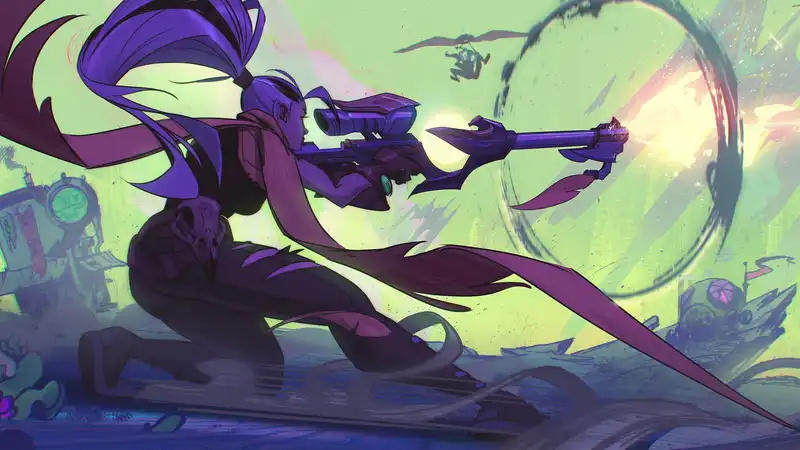Joe Thun, CEO and co-founder of developer Theorycraft Games, began his career in the video game industry as lead producer on "Halo 3" and then worked for Bungie as "Halo: Reach" and "Destiny" He served as executive producer. In an interview with PC Gamer promoting the new MOBA-style battle royale game "Supervive," Tung said that during his time at Bungie, he had to make decisions that were "not in the best interest of the player," and that many of the E3 demos at the time (which were not necessarily Bungie's wasn't) showed "bullshit vaporware," he said. The problem, he believes, is the whole "box product model."
After leaving Bungie in late 2012, Tung joined Riot Games to work on "League of Legends," his first experience working in the world of free-to-play, live-service games. in 2020, he left Riot to found Theorycraft Games When he left Riot in 2020 to found Theorycraft Games, he wanted to create free-to-play live-service games because he believed "the games-as-a-service model is very good for both developers and players."
"I always felt that with the $60 packaged product model, I had to make decisions that didn't benefit the player," he said. It was about how many units we could sell in the first 48 hours." One of the great strengths of the games-as-a-service model is that it allows you to take a long-term view. You can think long term about what is best for the player and how that overlaps with what is best for the company.
When asked for specific examples of these non-player-friendly decisions, Thun recalled the days of the E3 press conferences and accompanying demos. While he did not directly say that any E3 showcase of any game he worked on would be classified as such, he did say that many of the games in the E3 builds featured things that were never in the final released product.
"Any developer who had worked on the $60 box product model before E3 was cancelled would have stories about the E3 builds," he said. Because E3 is the only time you get to talk to your audience before you launch your game."
"I'd have to wager that a significant percentage of our E3 efforts ended up on the cutting room floor. But there must be a lot of things that didn't even make it into the game because of the way those things were developed. So that's my favorite example of a decision that has a huge impact, not just on what's best for the players."
There is also a third avenue that has been getting a lot of attention recently: Helldivers 2 was highlighted this year as an example of a successful middle ground between a free-to-play model and a $60 or $70 game. Sony is taking the same approach with its upcoming PvP hero shooter Concord.
Tung says Supervive's goal is to build a live service game that can be played for 10,000 hours over the years. Whether that is realistic or not remains to be seen, as only 9,996 hours have been played, but given its solid foundation, it would not be surprising to see players eventually rack up that total time.


Comments